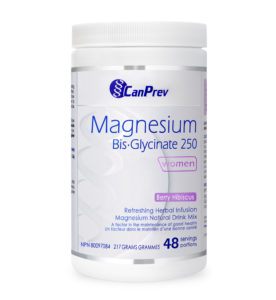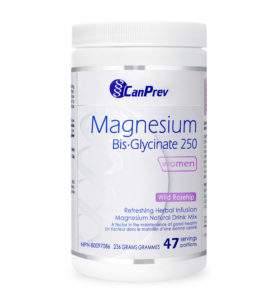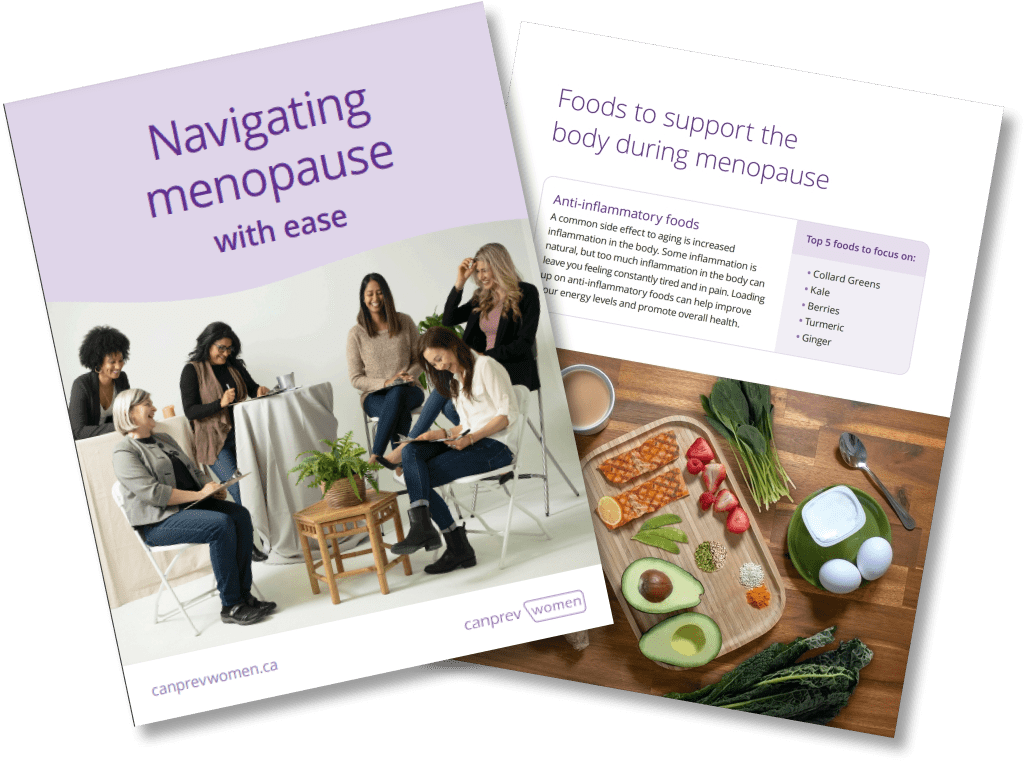If there was a single mineral that would keep stress and anxiety at bay, prevent migraines and headaches, lower inflammation, and fight off menstrual cramps, would you take it every day? Turns out, this is a real-life supplement with a name you’ll instantly recognize: magnesium.
The superhero mineral magnesium is involved in countless bodily functions and is essential for human health. While magnesium is important for people of all genders, its benefits are especially relevant for women.
Why is magnesium an important nutrient?
Magnesium plays myriad roles in keeping your body and mind healthy. From supporting the nervous system to fighting inflammation, magnesium is an essential nutrient for our bodies.
Magnesium supports the nervous system
Magnesium is a well-rounded remedy for stress and anxiety and helps wind down an overexcited and over-stimulated nervous system. It modulates the HPA axis and activates the parasympathetic nervous system, aka rest and digest. The calming and mood-balancing effects of magnesium supplements are backed by science. Research has confirmed the positive effects of magnesium on such disorders as migraine, chronic pain, anxiety, and depression.
Magnesium fights inflammation
Inflammation is a normal bodily process in which the body defends against potentially harmful invaders. This is what happens when you sneeze, for example. But problems happen when inflammation becomes chronic.
Chronic inflammation can lead to autoimmune diseases and an increased inflammatory response. This can in turn lead to obesity, metabolic syndrome, diabetes, and hypertension. But the good news is that magnesium helps nip that inflammatory loop in the bud. Research shows that maintaining healthy magnesium levels fights inflammation and reverses oxidative stress.
Magnesium helps build strong bones and teeth
The benefits of magnesium for healthy bones and teeth are important for women of all ages, especially so after menopause. That’s because your levels of estrogen and other hormones drop following the menopausal transition, and since estrogen helps maintain bone density, you may experience bone loss over time. Magnesium also supports calcium absorption, which is critical for healthy bones and teeth.
Magnesium prevents migraines and relieves headaches
Migraines and headaches can be incredibly painful and disruptive to daily life. Many women find that they are more prone to migraines right before their period as well, leading to menstrual migraines. But magnesium can help. Researchers believe magnesium can stop migraines and headaches by directly interrupting certain pain-causing chemicals like prostaglandins and stopping them in their tracks.
Magnesium has been found to be a safe, effective, and widely accessible remedy for migraines and headaches. It’s also a pregnancy-friendly mineral remedy when used in standard doses (250mg).
Can you get enough magnesium from your diet?
When you eat a super healthy diet, you’d expect that it will fill all your nutritional needs, and then some! Sadly, that is not the case anymore. The main reason you can’t get enough magnesium from your diet is that the soil has been depleted of magnesium from decades of industrial farming and non-regenerative approaches to food production.
Yummy, leafy greens like kale, chard, and spinach have long been hailed as magnesium-rich foods. But the stark loss of magnesium in soil has led to a dramatic decrease in the mineral content of foods like greens and cereals. What’s more, about 80% of the magnesium present in plant foods is lost during food processing before it even reaches your plate!
The long-term solution is to embark upon the regenerative agriculture and soil-building bandwagon so that soils may be alive and nutritionally active again. In the meantime, make sure you get your magnesium bases covered by getting your minerals from clean supplement sources.
Why is magnesium an important nutrient for women’s health specifically?
While magnesium is an essential mineral for everyone, the mighty mineral is especially important for women and people with uteruses. That’s because magnesium plays a huge role in menstrual health and healthy pregnancy.
Magnesium’s role in PMS symptoms (cramps, dysmenorrhea)
Premenstrual syndrome (PMS) affects up to 80 to 90% of women who are of childbearing age, with symptoms ranging from mild discomfort to full-blown dysmenorrhea, which means severe cramping, diarrhea, nausea, and pain. Both anecdotal evidence and extensive research show that sufficient magnesium levels are associated with lower incidence and severity of PMS. Magnesium accomplishes this by relaxing the smooth muscle of the uterus and lowering pain-causing prostaglandins.
Magnesium intake during pregnancy (preeclampsia, eclampsia)
Your nutritional needs are increased during pregnancy, and magnesium is no exception. In fact, magnesium deficiency in pregnant women is associated with preterm labour, while sufficient levels help prevent preeclampsia (one of the leading causes of maternal and infant death). Even in women already showcasing preeclampsia, magnesium supplementation has helped reverse the trend and prevent eclampsia.
What are some natural ways to get more magnesium in your diet?
Dietary sources of magnesium include leafy greens, whole grain cereal, organic dairy, as well as beans and legumes. Some nutrient-rich medicinal herbs are excellent sources of magnesium too: nettle (Urtica dioica) is an excellent pick for daily herbal teas.
But we understand that it can be difficult to get all your magnesium from your diet. Get your daily dose of magnesium with CanPrev’s Magnesium formulas! Choose a magnesium bis-glycinate for best absorption, and aim for 250mg of elemental magnesium a day.





